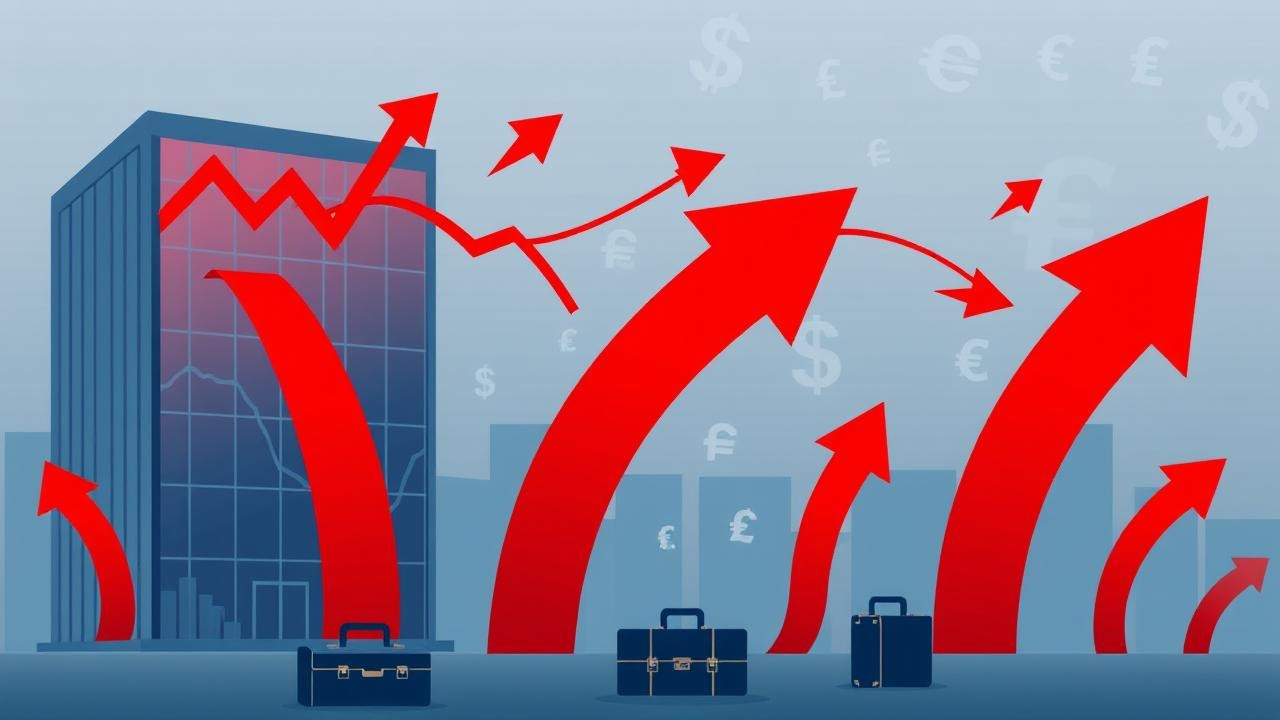Exxon Mobil and Chevron saw profits decline. This was their lowest in four years. Lower energy prices and increased OPEC+ oil supply impacted revenue. However, production volumes helped them beat expectations. Exxon’s production was the highest since the Exxon-Mobil merger. Chevron is acquiring Hess Corporation. OPEC+ plans to increase output, potentially pressuring crude prices. Geopolitical events also add uncertainty.
The Great Oil Slide: What ExxonMobil and Chevron’s Earnings Tell Us
The energy landscape just shifted, and the tremors are being felt across the globe. Giant oil producers ExxonMobil and Chevron just released their Q2 earnings, and the numbers paint a revealing picture: profits have plummeted to a four-year low. While production is up, revenue is down, signaling that the crude oil price environment remains stubbornly weak. What does this mean for consumers, investors, and the future of energy? Let’s dig in.
A Deep Dive into Declining Profits
ExxonMobil, often viewed as a bellwether for the industry, reported a significant drop in profit. Chevron followed suit, contributing to a combined earnings slump that’s hard to ignore. What’s driving this downward spiral? It’s not a simple case of supply and demand. Both companies have actually increased their output. The key culprit is the persistent weakness in crude oil prices. Despite geopolitical tensions and ongoing global demand, prices haven’t rebounded as many expected. This price pressure is squeezing profit margins, forcing even the biggest players to tighten their belts.
Production Up, Revenue Down: A Paradox?
The increased production from both ExxonMobil and Chevron might seem counterintuitive when profits are shrinking. It highlights a strategic decision: pump more oil to offset lower prices. However, this strategy is a double-edged sword. While it can maintain revenue streams in the short term, it also contributes to the oversupply that’s keeping prices down.  This complex dynamic creates a delicate balancing act for these companies, forcing them to constantly recalibrate their approach.
This complex dynamic creates a delicate balancing act for these companies, forcing them to constantly recalibrate their approach.
Why Are Crude Oil Prices Still Weak?
Several factors are contributing to the continued weakness in crude oil prices. Firstly, global economic uncertainty is dampening demand projections. While travel and industrial activity have largely recovered from the pandemic, fears of recession and slower growth in major economies are weighing on the market. Secondly, increased oil production from other countries, including those not bound by OPEC+ agreements, is adding to the supply glut. Finally, the growing shift towards renewable energy sources, although a long-term trend, is gradually impacting demand for fossil fuels.
The Ripple Effect: What It Means for You
So, how does this earnings slump affect the average person? In the short term, it could translate to lower prices at the pump. While geopolitical events can always cause volatility, the current market dynamics suggest that we’re unlikely to see a dramatic surge in gasoline prices anytime soon.
For investors, the situation is more complex. While the dip in oil prices may present buying opportunities, it also raises questions about the long-term viability of investing heavily in traditional energy companies. The transition to renewable energy is accelerating, and companies that fail to adapt risk being left behind. Diversifying investment portfolios and exploring opportunities in the clean energy sector may be a prudent strategy. Speaking of future planning, consider exploring how these factors may affect your future energy consumption by reading our guide on energy-efficient home improvements.
The Future of Big Oil: Adaptation or Decline?
The challenges facing ExxonMobil and Chevron are indicative of a broader trend in the energy industry. The era of easy profits from crude oil is coming to an end. The successful energy companies of the future will be those that can adapt to a changing world, embracing innovation, investing in renewable energy sources, and managing their operations efficiently in a volatile market.
The Q2 earnings reports from these oil giants serve as a stark reminder that the energy landscape is in constant flux. While the immediate impact may be lower prices at the pump, the long-term implications for investors and the future of energy are far-reaching. The slide in crude oil earnings is a wake-up call – the future belongs to those who can anticipate and adapt to the inevitable energy transition.







